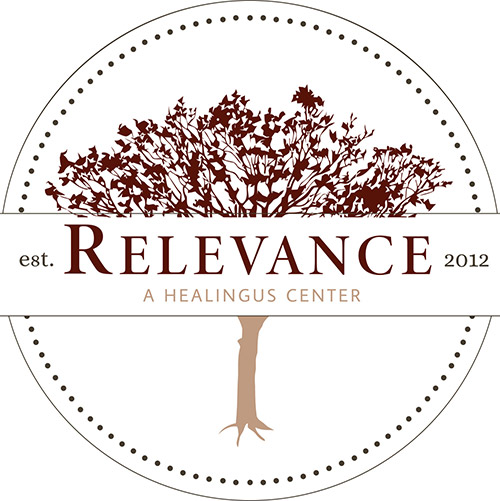When prescribed and used appropriately, Ambien (the generic name is zolpidem) is intended for short-term treatment of insomnia. But many people don’t realize how quickly someone can become addicted to ambien, especially when usage extends beyond the recommended timeframe or dosage. Addiction doesn’t always look dramatic at first—often it creeps in, tightening its grip before you realize it. Understanding the timeline, risk factors, and warning signs can help you or a loved one catch dependency early.
The Mechanism Behind Ambien and Risk of Dependence
Ambien works by enhancing the activity of a neurotransmitter called gamma-aminobutyric acid (GABA), which reduces neural activity and helps induce sleep. Due to this direct effect on the central nervous system, the brain can begin to rely on the drug for its calming effect. Over time, with repeated use, the body may reduce its own natural GABA signaling or adapt so that it “needs” the drug to fall or stay asleep.
Zolpidem is classified as a Schedule IV controlled substance in the U.S., reflecting its potential for abuse and dependency. Wikipedia As with many sedative-hypnotics, the line between therapeutic use and misuse is thin, especially when dosage or duration increases beyond what was intended.
Typical Timeframes for How Fast Someone Can Get Addicted to Ambien
There is no fixed rule for how fast Ambien addiction must develop—individual biology, dosage, frequency, and underlying mental health all play a role. However, some sources note that dependency and misuse risks increase significantly when Ambien is used beyond a few weeks or at higher-than-recommended doses.
For instance, AddictionCenter suggests that dependence can develop with extended use beyond the short-term course, and the withdrawal timeline can begin within days after stopping. American Addiction Centers+1 BlackBearRehab notes that side effects and misuse may escalate “quickly,” and some individuals begin to feel reliant on the drug after a short period of use. Black Bear Lodge
That said, clinical guidelines typically recommend Ambien use for a few days to 1–2 weeks at most. When usage continues longer without medical supervision, the risk of tolerance, dependence, and addiction rises sharply.
Warning Signs That Addiction May Be Taking Hold
Even before full-blown addiction sets in, there are red flags that someone may be becoming dependent on Ambien:
- Increasing the dose or frequency without consulting a physician
- Needing Ambien to sleep, even on nights when there’s no obvious cause of insomnia
- Experiencing rebound insomnia, anxiety, or irritability when missing a dose
- Developing cravings for Ambien or obsessing over when the next dose is possible
- Engaging in risky behaviors (e.g., “sleepwalking,” memory lapses, performing tasks while semi-conscious)
These signs suggest that the brain and body are adapting to expect the drug, which is one of the hallmarks of early addiction.
The Danger of Withdrawal & Why Early Intervention Matters
Once dependency is present, stopping Ambien abruptly or lowering the dose too fast can provoke withdrawal symptoms. These may include rebound insomnia (where insomnia becomes worse than before), anxiety, sweating, tremors, mood swings, and—in rare but serious cases—seizures or delirium.
Because withdrawal can be uncomfortable and even dangerous, professional or medical supervision is strongly recommended during the tapering process.
Catching dependency early means you avoid the cycle where tolerance leads to higher doses, higher doses bring more side effects, and withdrawal fears reinforce continued use. That cycle is at the heart of addiction.
What You Can Do If You’re Concerned About Ambien Dependence
If you suspect that Ambien is becoming more than a sleep aid in your life, here are steps to consider:
- Reach out for medical guidance — Talk to a physician or prescribing provider. They can evaluate your situation and prescribe a safe tapering schedule if needed.
- Seek support in a structured treatment program — At Relevance Recovery, we specialize in helping individuals who struggle with Ambien addiction. We offer detox, outpatient programs, therapy, and holistic support to guide you through recovery.
- Address underlying causes — Insomnia often stems from stress, anxiety, sleep hygiene issues, or co-occurring disorders. Treating the root causes helps reduce the reliance on medication.
- Track and limit usage — Keep logs of when you take Ambien and your sleep quality. Avoid using it continuously for more than a few days without medical supervision.
- Utilize behavioral sleep strategies — including Cognitive Behavioral Therapy for Insomnia (CBT-I), maintaining strict sleep schedules, reducing screen time, and practicing relaxation techniques — to help you regain your natural sleep rhythms.
Struggling With Ambien Addiction in New Jersey? Don’t Wait to Get The Help You Need By Reaching Out Today
You don’t have to face this alone. If you or someone you care about is showing signs of Ambien dependence or struggling to reduce usage safely, contact Relevance Recovery today. Our team is here in Freehold, NJ, to provide confidential assessments, medically supervised detox, evidence-based therapy, and ongoing support. Take the first step toward reclaiming your sleep—and your life. You deserve care and hope.



















